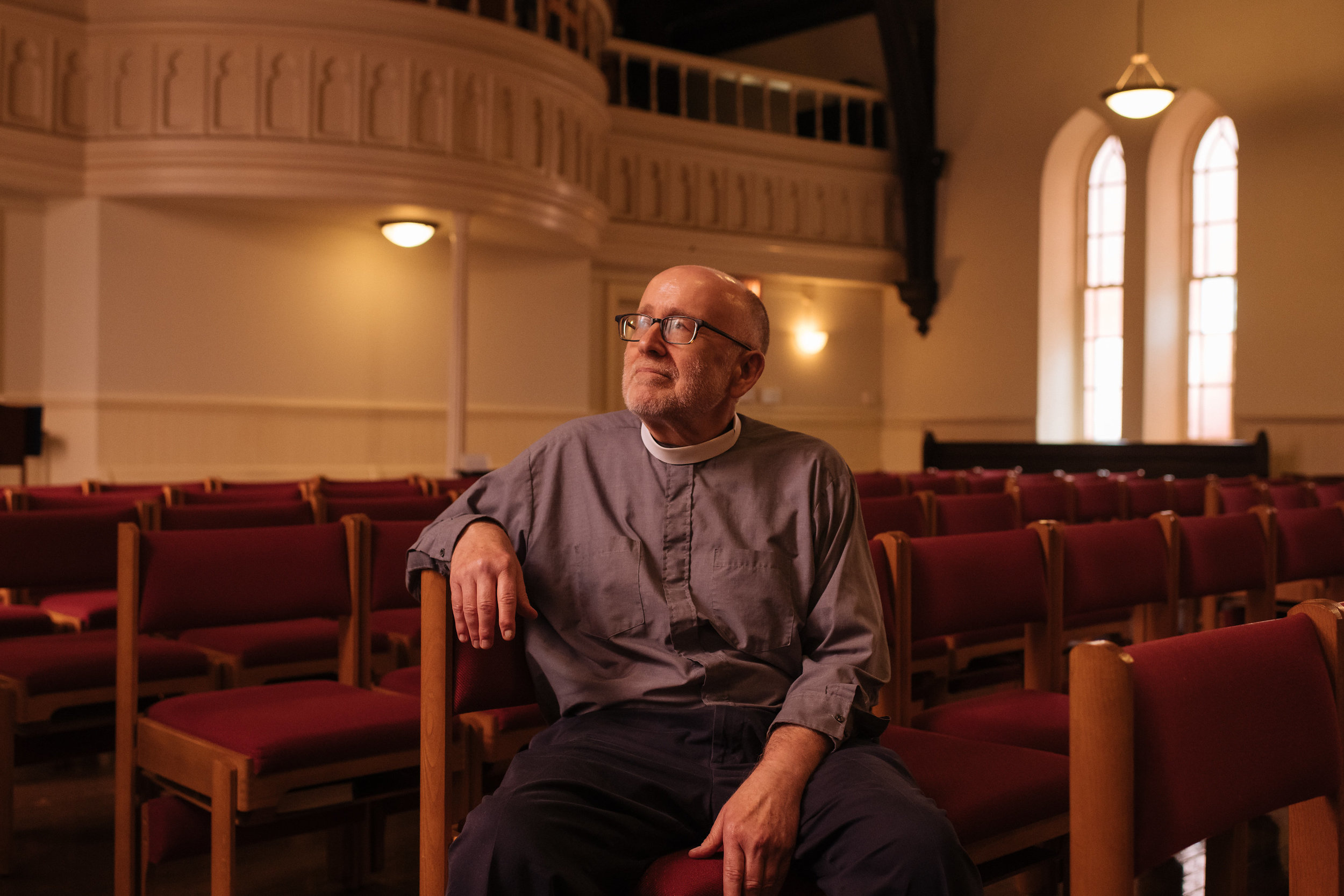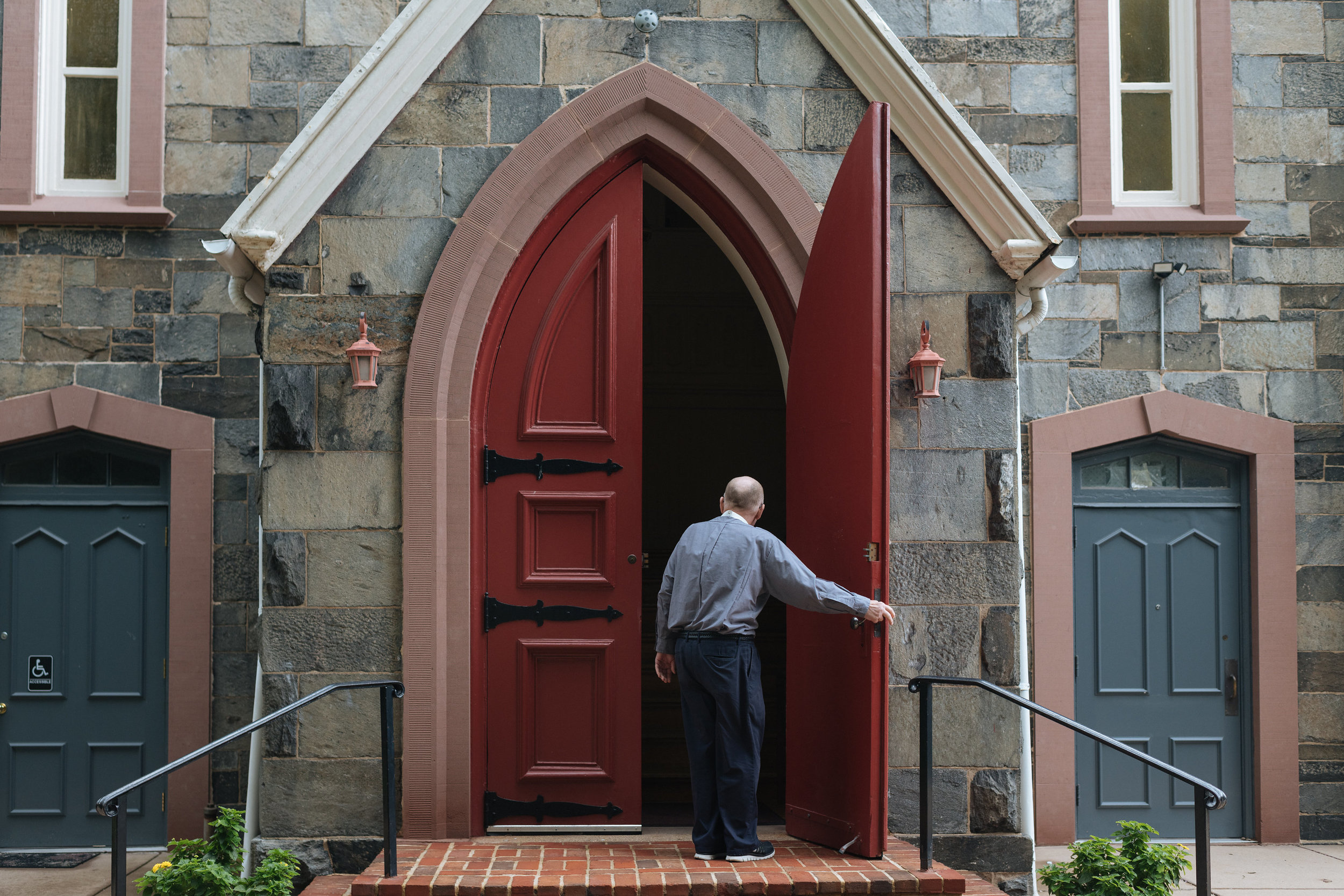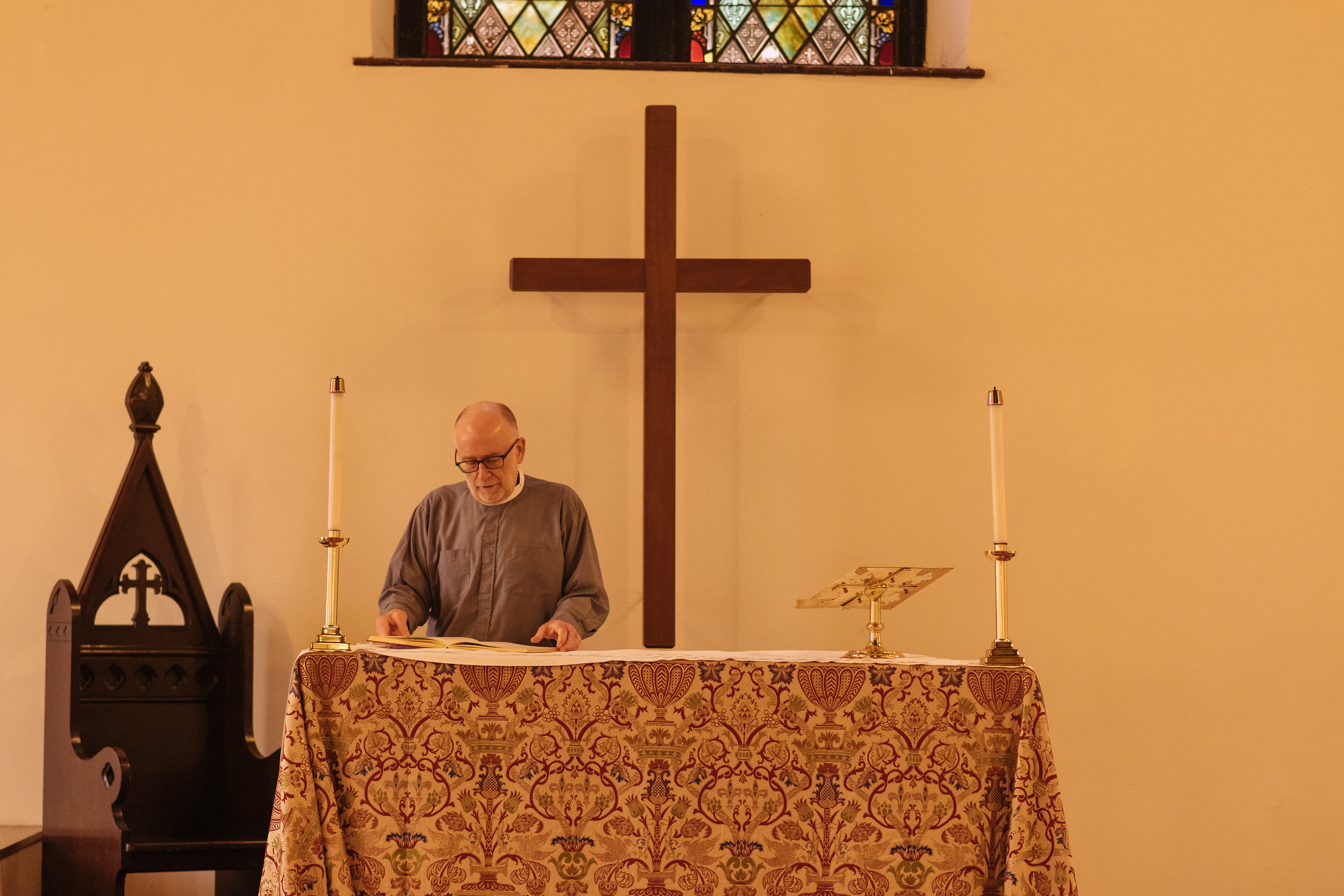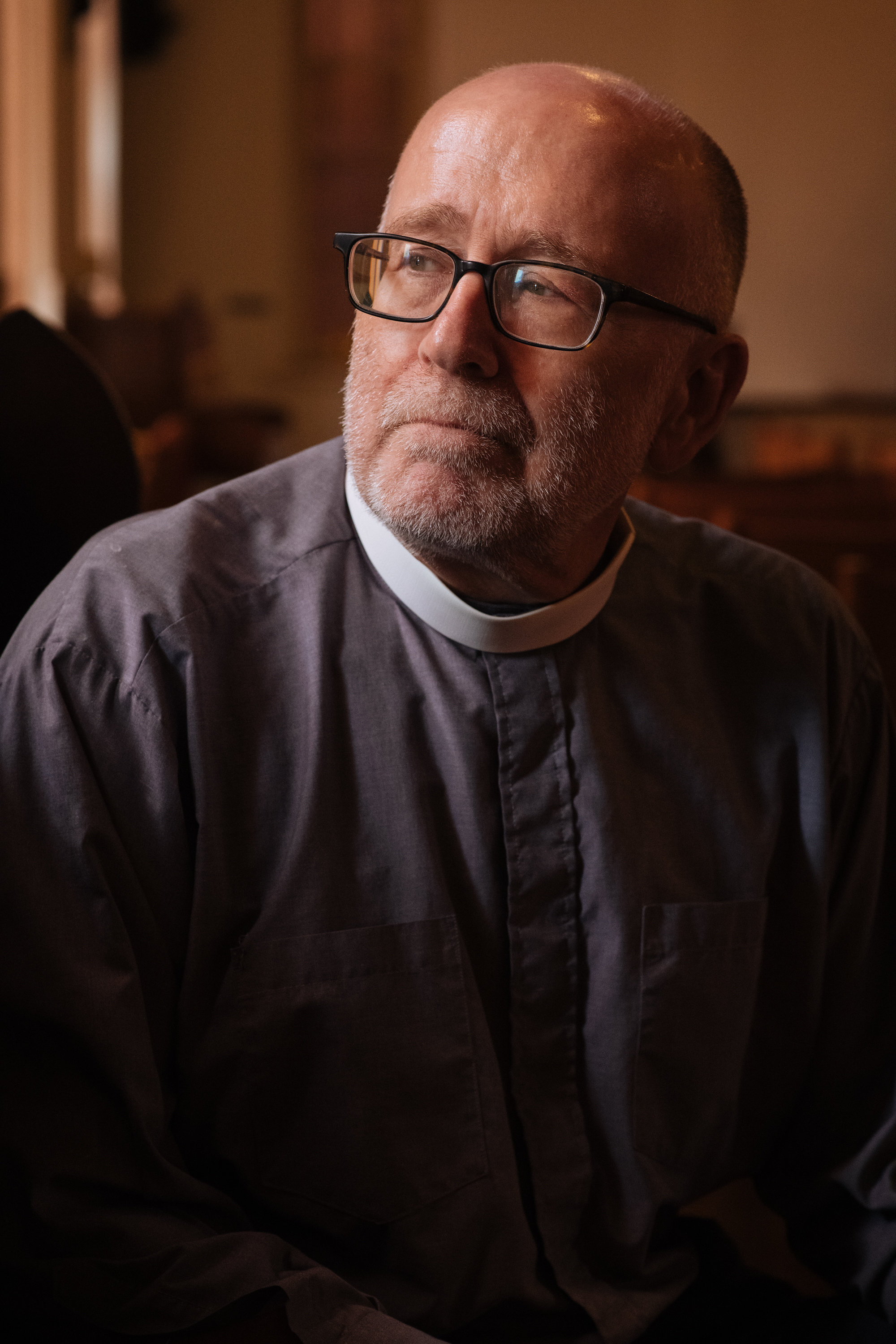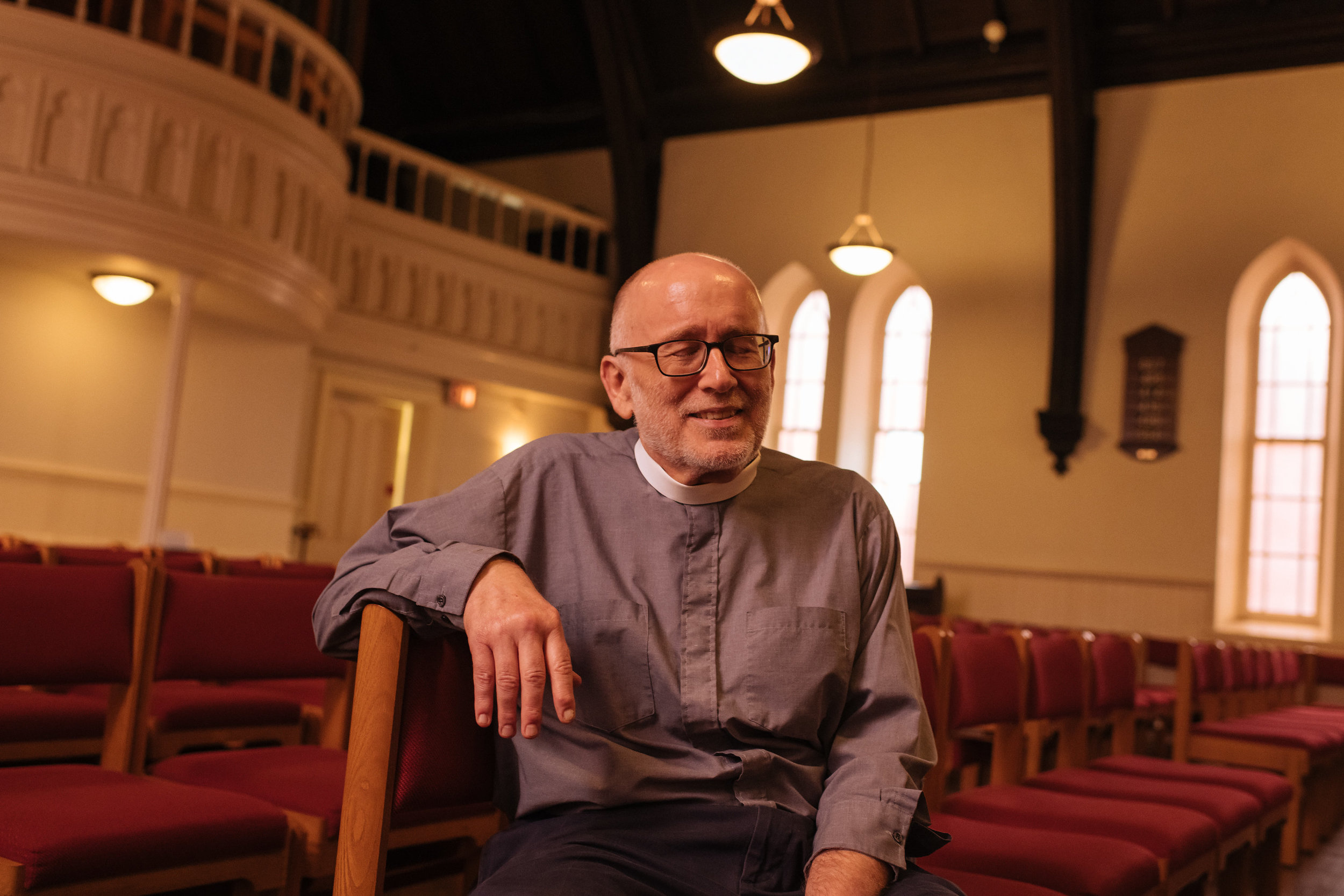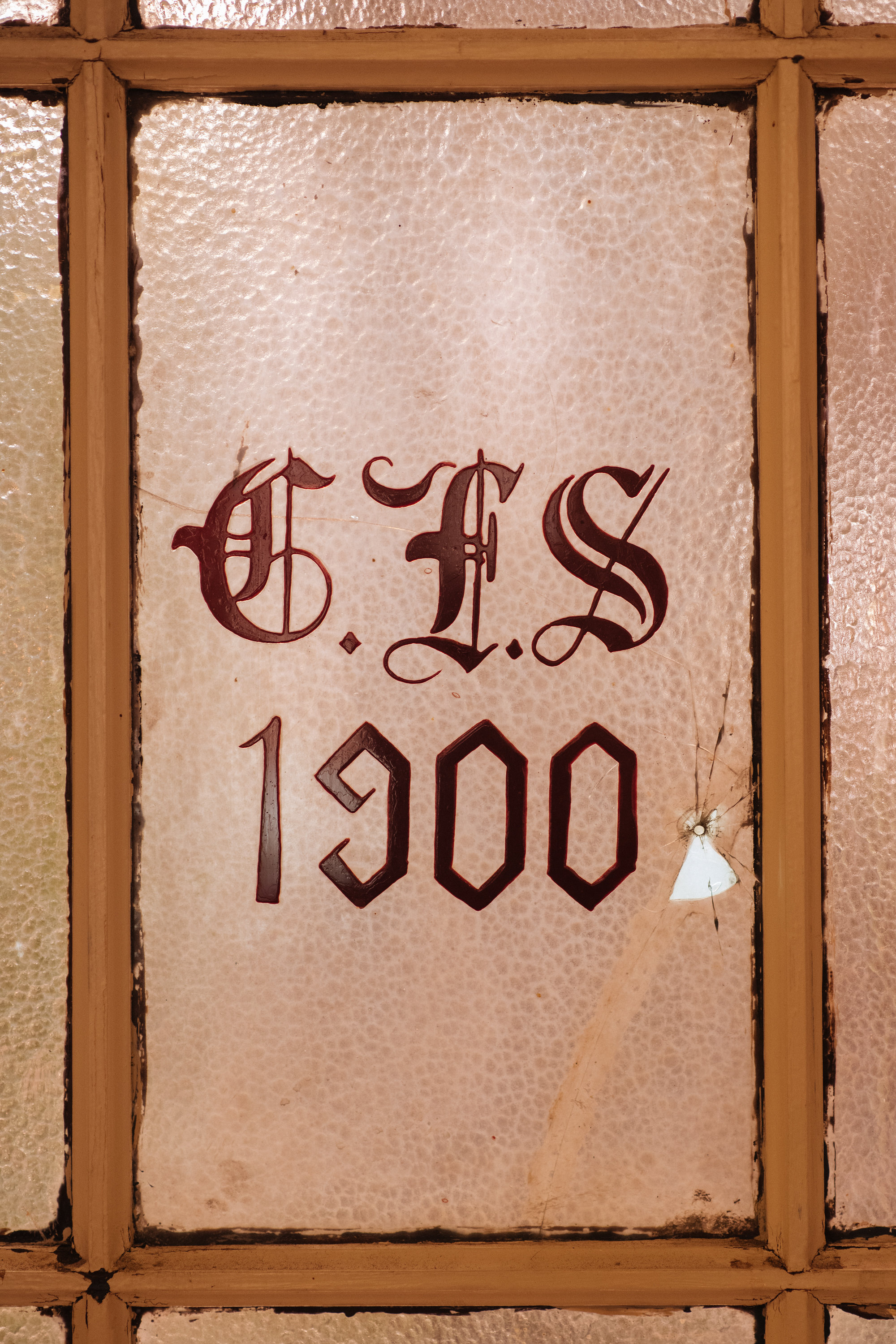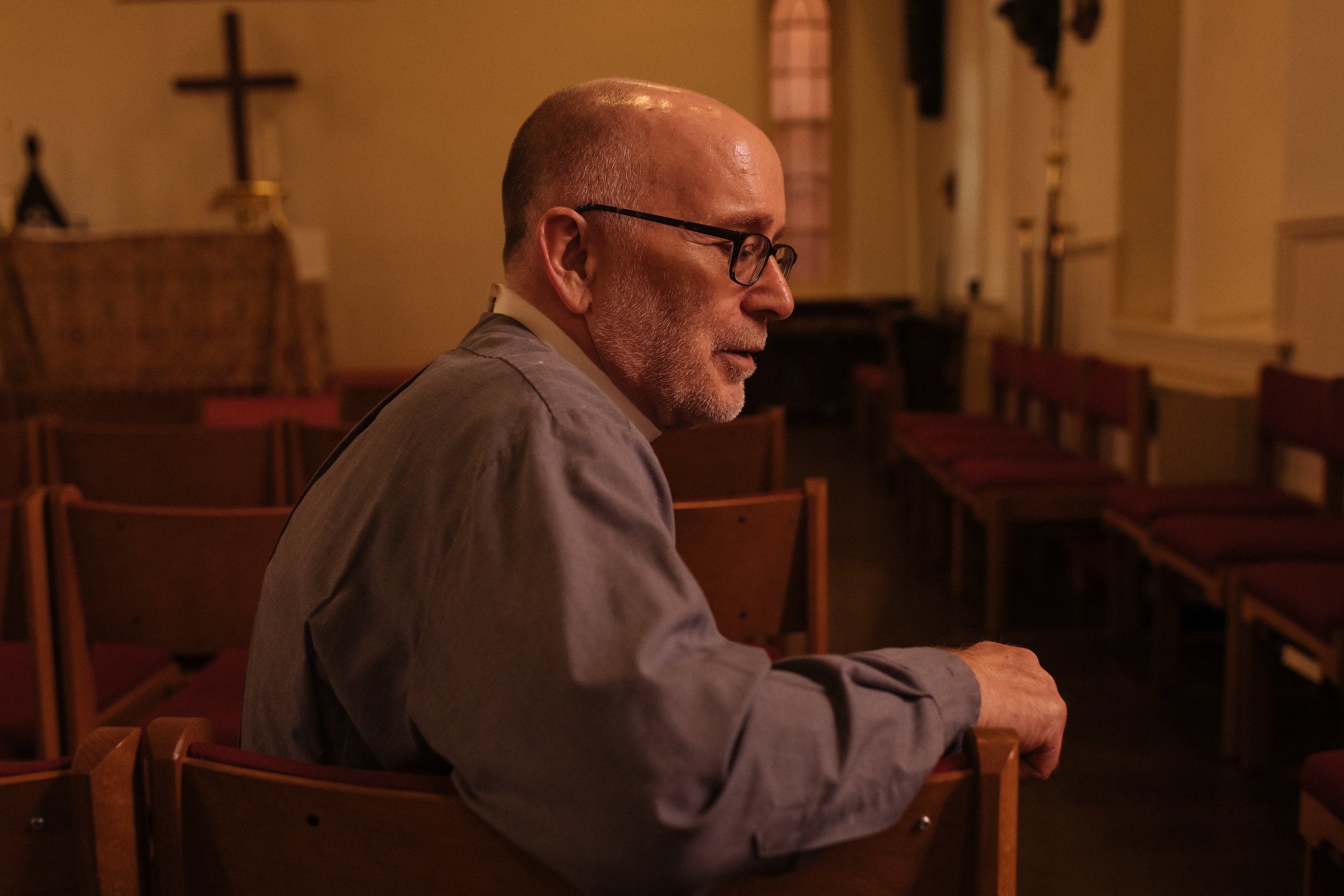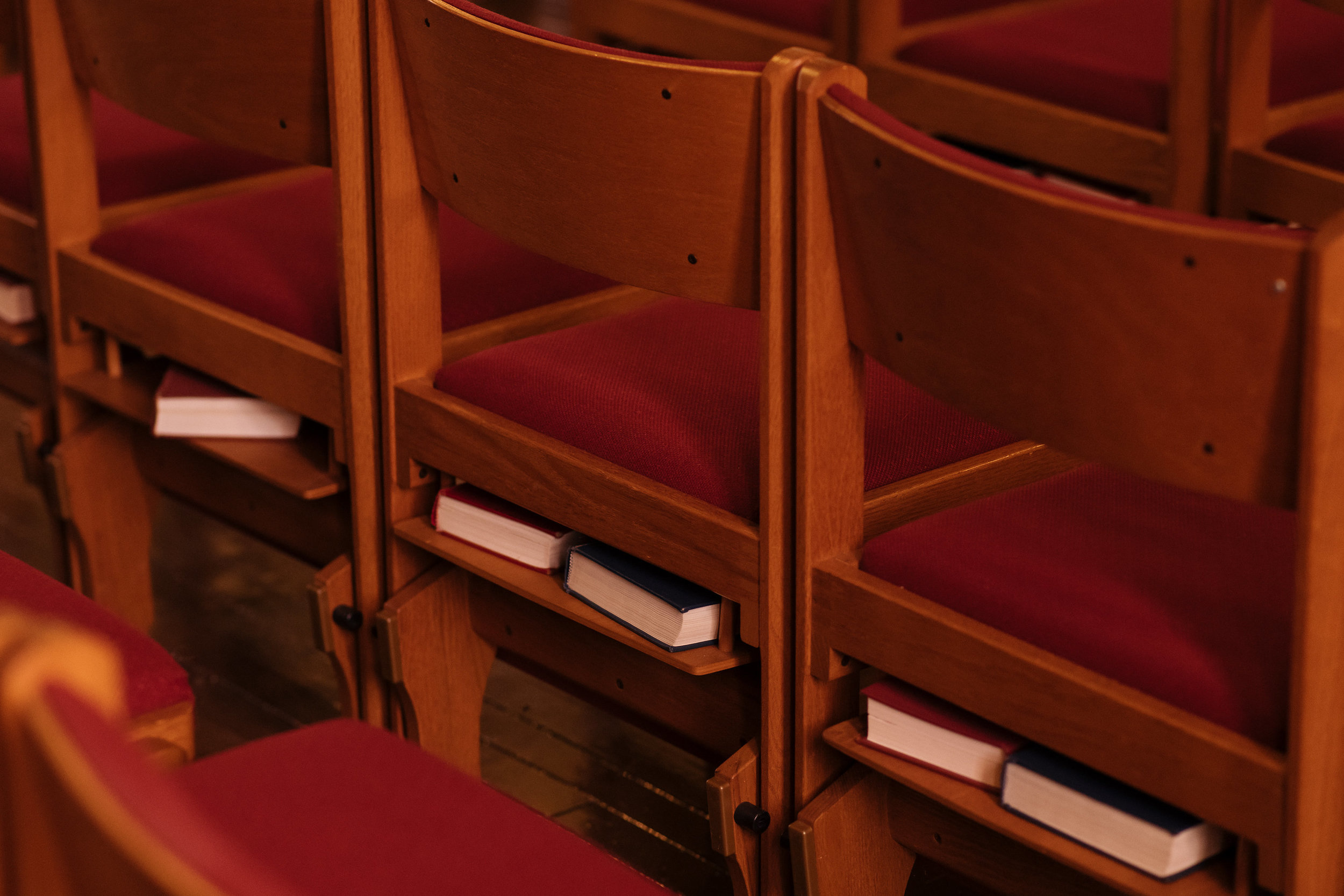‘I’m Not the Paragon of Perfect Spirituality’
Tucked away off Wisconsin Avenue sits a church with a red door. A church, stripped of modern conveniences, not unlike the stable at Bethlehem.
‘There’s a lot of space sharing that goes on around here,’ says Rev. John Graham, who’s been at the spiritual helm of Grace Episcopal Church since 2004. ‘My own belief is that one of the church’s principle vocations or ministries is to literally make room for people. It’s a little like where Jesus was born. The place was overcrowded with all kinds of different groups, included animals who didn’t smell good, a little baby and mother who’d just given birth, shepherds, and some mysterious strangers from the east, but the whole idea was to make space for everyone in that stable. I think that’s pretty important.’
Inclusion has been at the heart of Rev. Graham’s ministry work since he was ordained in the Episcopal Church in 1984. Seminary had always been in the back of his mind—inspired by the clergy at his childhood church in Chicago.
‘My dad died when I was quite young and I had two considerably older sisters who were out of the house when I was pretty young, too, so it was just me and my mom. I was really on the hunt for a father figure, and among them were the local clergy. I thought what they did was cool.’
Rev. Graham taught and worked in social services for a few years after grad school, where he met his future wife, Sakena—a Baptist from the south side of Chicago. But neither career felt like his true calling, and in the late 70s he returned to the church after some time away.
‘That childhood aspiration and interest was revived, and that’s what took me to seminary. Which I’ve never really regretted. It was the right thing to do.’
For the next 20 years, Rev. Graham served two congregations in Chicago, one of which was Spanish-speaking. The pastor at that congregation had befriended Rev. Graham, taught him some Spanish, and pushed him to help with his services. When he fell ill and died within months, Rev. Graham permanently took over.
‘I got better pretty fast, and due a major immigration overhaul passed by President Reagan, my church became like a processing center for people who were undocumented but wanted to take advantage of the program. We were flooded by people who needed help with their applications. It was almost like an immersion experience for me, except in the U.S.’
In 2004, an acquaintance asked Rev. Graham if he’d be interested in applying for an open position in Georgetown—an area somewhat familiar to him thanks to three years of seminary in Alexandria. At 49, Rev. Graham knew if he and his wife were going to make a change, they’d better do it now.
During those early DC days, the city was experiencing its first big growth spurt, which trickled down into the congregation. When President Obama was elected, Rev. Graham saw even more young people.
Although membership has since plateaued, he says Grace Episcopal is still fortunate.
‘Many churches throughout our diocese are really struggling to hold the body and soul together. We’re definitely operating year-to year, but we’re not week to week.’
In part, that struggle stems from scriptures that often seem so far removed from the 21st century.
After going over the readings every Monday, Rev. Graham spends the week—usually while driving or exercising—figuring out the pieces of his sermon and how they’re going to fit together. He does his best to interpret how the scriptures speak to his congregation on a personal level, as well as in their larger social and political lives. To do so, he draws on the improvisational nature of jazz.
‘I consider my preaching to be improvisational. Which doesn’t mean spur of the moment, it means spoken from trying to hold both the scriptures and contemporary reality and tension, and see where that takes me in the context of this week, this day. I look to the scriptures for what healing, direction and encouragement it can provide us for negotiating this world in a way that makes us feel like we’re true to ourselves, and true to our faith.’
Rev. Graham says the Trump era has been especially challenging to reconcile.
‘The majority of our members call themselves liberal or center left, but not everybody. There are a significant amount of people in our church who voted for Trump, some enthusiastically, some less so. So I feel like I need to address everybody and help all of us navigate our way through the testing and challenges of the present time. I think people probably know more or less what my politics are, but I try not to make pronouncements, and instead help people think or pray their way through things.’
A famous church historian once said a church’s political perspective is usually in reverse correlation with its AV technology. It’s certainly the case at Grace Episcopal, where parishioners won’t find Wi-Fi or services streamed on Sundays. Rev. Graham says the only concession they’ve made is printing most of the service in a single booklet, rather than switching back and forth between the hymnal and the Book of Common Prayer.
‘It grieves me a little bit because I grew up with the Book of Common Prayer and I love it, but it makes the service more user friendly. As one of our younger members said, ‘You know in 10 years we’ll all be doing the service on our iPads.’ It could be true.’
In the meantime, Rev. Graham is intent on getting more young people out from behind their screens and engaged in advocacy and public witness, particularly on behalf of their homeless neighbors at Georgetown Ministry Center. He says it’s hard to get these ‘self-described progressives’ focused on local issues in a city with its sights set on national and international causes—a stark contrast to Chicago.
‘Couples in Northwest DC have professional jobs, usually advanced degrees, and children—and that sucks up all the oxygen. These kids and families are tightly scheduled. To the hour. And social media is probably also an issue, because people post what they think about things on social media, and that’s their activism. We need people to contact council members and go to meetings in church basements, and that’s just not what they do. Although I sometimes get irritated with people for not signing up for things, I also have a sense of how complicated their lives are. Some by their own choice, but then again, it’s what’s in the air these days.’
When Rev. Graham isn’t advocating, he spends a large portion of his week visiting those in need, and completing those less glamorous grounds management and admin tasks. He sees all of it as its own form of ministry—contractors just as much part of the church as the parishioners.
It’s a church Rev. Graham loves deeply, from its music, to its liturgy, and democratic, self-governing practices. In many ways, he says he’s a better Episcopalian than Christian.
‘I grew up in the church and I treasure all of these things about it. I think it’s an important institution in that regard, bringing the traditional into the world we live in now. It brings its own satisfactions, and sometimes a more intimate, personal relationship with God is another thing. I’m attached to the church as a conduit for God, but I’d say I’m further along on the church part than the God part. I think a lot of people in the pews would say the same thing. I’m not the paragon of perfect spirituality. I’m on the journey, too.’
